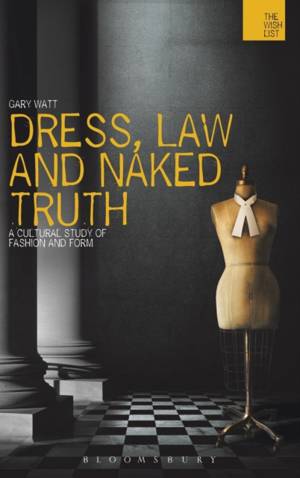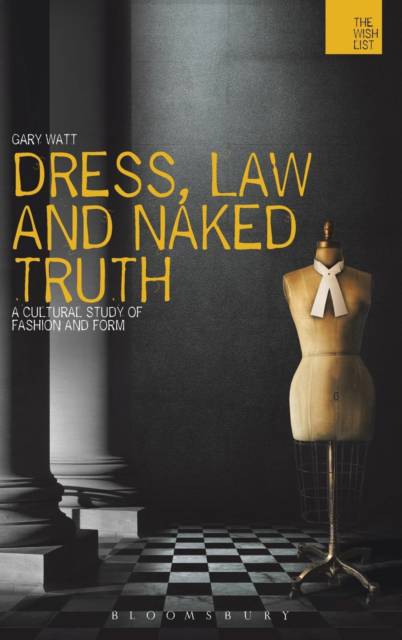
Je cadeautjes zeker op tijd in huis hebben voor de feestdagen? Kom langs in onze winkels en vind het perfecte geschenk!
- Afhalen na 1 uur in een winkel met voorraad
- Gratis thuislevering in België vanaf € 30
- Ruim aanbod met 7 miljoen producten
Je cadeautjes zeker op tijd in huis hebben voor de feestdagen? Kom langs in onze winkels en vind het perfecte geschenk!
- Afhalen na 1 uur in een winkel met voorraad
- Gratis thuislevering in België vanaf € 30
- Ruim aanbod met 7 miljoen producten
Zoeken
Omschrijving
Why are civil authorities in so-called liberal democracies affronted by public nudity and the Islamic full-face 'veil'? Why is law and civil order so closely associated with robes, gowns, suits, wigs and uniforms? Why is law so concerned with the 'evident' and the need for justice to be 'seen' to be done? Why do we dress and obey dress codes at all? In this, the first ever study devoted to the many deep cultural connections between dress and law, the author addresses these questions and more. His responses flow from the radical thesis that 'law is dress and dress is law'.
Engaging with sources from The Epic of Gilgamesh to Shakespeare, Carlyle, Dickens and Damien Hirst, Professor Watt draws a revealing history of dress and civil order and offers challenging conclusions about the nature of truth and the potential for individuals to fit within the forms of civil life.
Engaging with sources from The Epic of Gilgamesh to Shakespeare, Carlyle, Dickens and Damien Hirst, Professor Watt draws a revealing history of dress and civil order and offers challenging conclusions about the nature of truth and the potential for individuals to fit within the forms of civil life.
Specificaties
Betrokkenen
- Auteur(s):
- Uitgeverij:
Inhoud
- Aantal bladzijden:
- 192
- Taal:
- Engels
- Reeks:
Eigenschappen
- Productcode (EAN):
- 9781472500427
- Verschijningsdatum:
- 10/10/2013
- Uitvoering:
- Hardcover
- Formaat:
- Genaaid
- Afmetingen:
- 155 mm x 236 mm
- Gewicht:
- 453 g

Alleen bij Standaard Boekhandel
+ 457 punten op je klantenkaart van Standaard Boekhandel
Beoordelingen
We publiceren alleen reviews die voldoen aan de voorwaarden voor reviews. Bekijk onze voorwaarden voor reviews.









